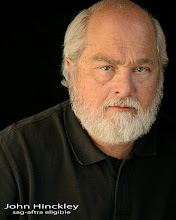The recent U.S. Court of Appeals for the District of Columbia ruling regarding the Guantanamo Bay detainees reminded me of detainees in another time and another place.
The Registration Act of 1940 required Japanese, German and Italian Americans to register at their local post office and the act also required these people to re-register within five days of moving. Shortly after the act was passed and President Franklin Roosevelt signed it into law, the FBI and military intelligence began to watch the leadership in the ethnic communities covered by the act.
Shortly after the attack on Pearl Harbor ended on Sunday December 7, 1941, the President signed Executive Order 9066 and the army and FBI conducted raids across the United States and arrested thousands of foreign nationals and U.S. Citizens.
In January of 1942, Japanese-Americans were banned from living on the East and West Coast of the United States and within all Class 1 Military Zones. (Class 1 Military Zones included most of the United States.) Civilian Exclusion Order #5 was also signed by President Roosevelt. This order compelled the liquidation of all assets that these Japanese-Americans couldn't carry with them. It's certainly a good thing that California had banned non-citizens from owning property back in 1910. Just one minor problem, they didn't enforce the ban until 1942.
The final insult (or was it) came in May of 1942 when over 120,000 Japanese-Americans, over 60% of whom were U.S. Citizens, and members of certain Eskimo tribes were ordered to pickup points throughout the United States. Many of these men, women and children had no idea of the fate that awaited them.
They were "relocated" to "camps" throughout the Western United States where they were kept until the end of World War II.
I do not condone what happened to so many U.S. Citizens during the second world war. I'd simply ask those who are opposed to detaining terrorists captured during combat operations in Afghanistan and Iraq to step back and compare. Compare the "crimes" and conditions in each case. Compare if you dare the legal process in each case.
Of the over 8,000 detainees at the Topaz camp in Utah, nearly 500 volunteered to serve in the U.S. Army, Navy and Marine Corp. My mother, who worked for the FBI at the time of the attack on Pearl Harbor, transmitted names and other information by teletype for nearly two straight days after the attack on Pearl Harbor and she always believed in what she was called to do in the defense of the United States. I have the luxury of time to reflect on what happened.
I think that this summer, some sixty-three years after the fact, I'd like to visit Topaz and see for myself.
